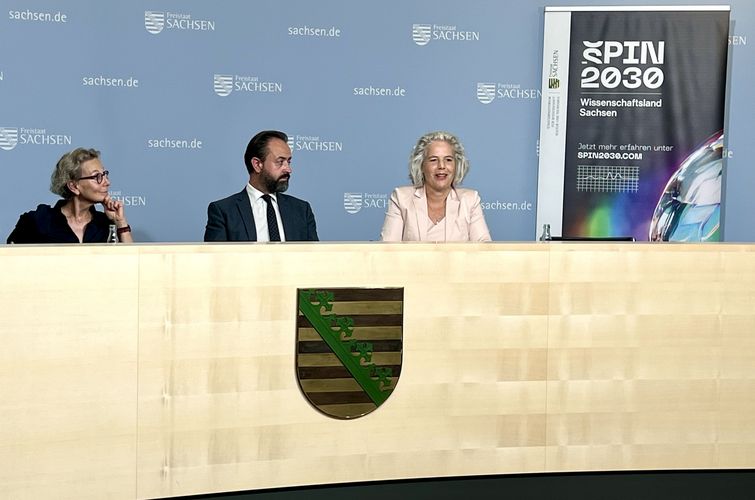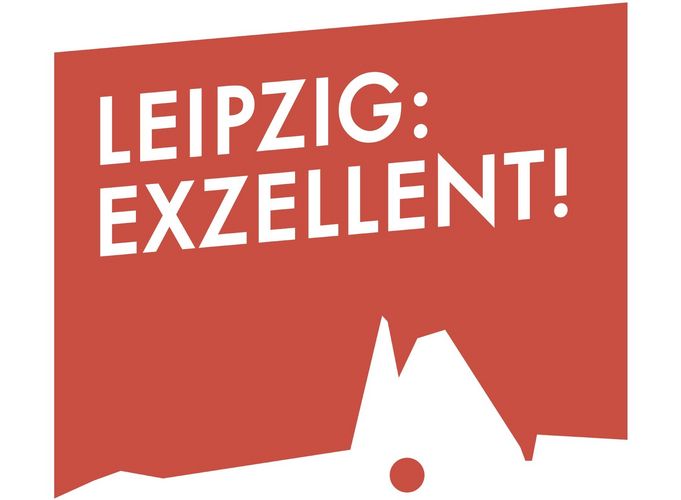Of the 41 new Cluster proposals and 57 renewal applications submitted by higher education institutions in Germany, up to 70 Clusters of Excellence can be funded. The federal and state governments will provide a total of about €385 million annually for project funding for the Clusters of Excellence until 2025 and about €539 million annually from 2026. The Ministry of Science closely supports the application process and also provides financial support.
Sebastian Gemkow, the Minister of Science, says:
“The Excellence Strategy of the federal and state governments is designed for long-term commitment and continual further development at the very highest level. The Saxon state government is a reliable partner standing behind the universities, and not only during the competition phase. Based on the agreement between the federal and state governments, the Free State of Saxony also guarantees its support for all successful Clusters of Excellence in the subsequent implementation phase. These Clusters will make us even more attractive for excellent researchers and increase the visibility of cutting-edge research and cutting-edge technology ‘Made in Saxony’. I am confident and am keeping my fingers crossed that the Cluster of Excellence proposals will be selected for funding in the second round of the Excellence competition.
Rector of TU Dresden, Professor Ursula Staudinger, adds:
“The fact that we submitted six full proposals, four of them under our sole leadership and two together with our partners emphatically underlines our exceptional performance as a top research university, and we are confidently entering this decisive phase in the current round of the Excellence Strategy. Over the past few months, we have worked very hard to achieve this, both in the existing Clusters of Excellence and in the initiatives selected to become full proposals as well as in the administration and in the Rectorate at TU Dresden. I would like to thank everyone involved for this outstanding achievement – as well as the Free State of Saxony, which has supported and substantially funded us along the way and been a truly reliable partner.”
Rector of Leipzig University, Professor Eva Inés Obergfell, emphasises:
“Submitting these proposals marks an important milestone for Leipzig University,” says Professor Eva Inés Obergfell, rector of Leipzig University. “They are the result of close and interdisciplinary collaboration between our researchers and a reflection of the outstanding research environment in Leipzig. This success would not have been possible without the support of the Free State of Saxony. Thanks to the financial support, we were able to further expand cutting-edge research at Leipzig University and develop two areas for the Excellence Strategy.”
New proposals from Leipzig University:
Leipzig Center of Metabolism (LeiCeM) – Understanding and improving metabolic health
The research centre is dedicated to understanding and improving the disease burden caused by metabolic disorders that lead to serious health problems such as diabetes mellitus, the development of fatty liver disease and cardiovascular disease. LeiCeM focuses on personalised therapeutic approaches and metabolic variations rather than targeting general risk factors. Special attention is paid to early childhood development as well as genetic influences on lifelong disease risks.
Breathing Nature – Interactions between biodiversity, climate and human behaviour
In the Cluster of Excellence project Breathing Nature, researchers from the life sciences, economics and earth system sciences are investigating the interactions between biodiversity loss and climate change, two of the greatest current challenges worldwide. The focus is on human behaviour in times of environmental crises and the question of societal solutions.
Background: Excellence Strategy of the federal and state governments:
In 2016, the federal and state governments reached an agreement on a joint Excellence Strategy to provide long-term support for cutting-edge research at German universities. The aim is to strengthen Germany as a centre of science and research and make it more visible in international competition. The funding aims to facilitate top research, raise the university profiles and encourage further networking and collaboration in the research system. The Excellence Strategy therefore ties the funding of cutting-edge research with long-term and strategic investments in the higher education system.
The Excellence Strategy includes two funding lines:
- Clusters of Excellence
- Universities of Excellence
The Clusters and Universities of Excellence are selected according to research-based selection procedures. These procedures are conducted by the German Research Foundation (DFG) and the German Science and Humanities Council on behalf of the federal and state governments.
The Excellence Commission – comprising the scientific members of the Committee of Experts and the federal and state ministers responsible for science – will decide in May 2025 which Clusters of Excellence will receive funding from 1 January 2026.
To strengthen competition, up to 70 Clusters of Excellence across Germany will receive funding totalling €539 million per year from the second funding period onwards. And from 2026, the Excellence Strategy will provide a total of €687 million in funding per year. Seventy-five per cent of the funds will be provided by the federal government and 25 per cent by the respective federal state of the Cluster of Excellence or University of Excellence.
In November 2025, universities that have acquired at least two Clusters of Excellence can submit a proposal for the University of Excellence funding line. The funding decisions for the Universities of Excellence will be taken in 2026. About €148 million are earmarked each year for up to fifteen Universities of Excellence or Excellence Alliances. Additional funds will also be made available to fund up to four new additional Universities of Excellence.






























































